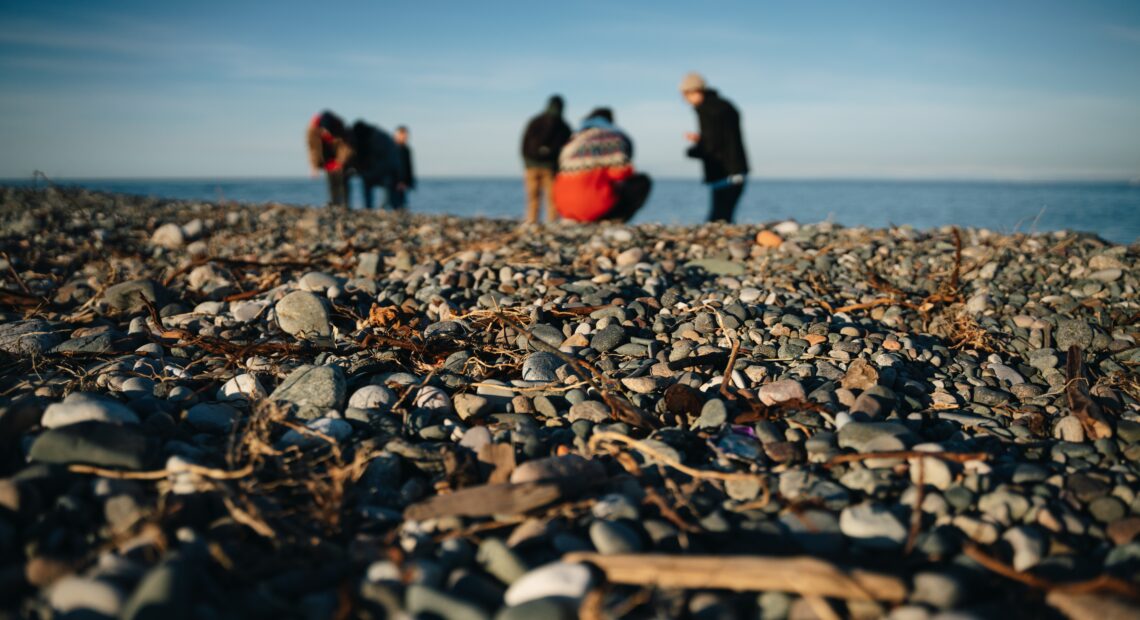Primary and second-level students have placed 300 specially adapted smart pebbles at Killiney Beach (Dublin) and Raghly Beach (Sligo) in a project to track coastal erosion. The innovative project aims to strengthen coastal communities’ ability to deal with the impacts of climate change using digital technologies.
Led by Dr Chiara Cocco and Dr Francesco Pilla, researchers with Lero, the Science Foundation Ireland Research Centre for Software, at University College Dublin (UCD) and Dr Iulia Anton, a researcher at Atlantic Technological University Sligo, the ‘smart’ pebbles initiative is part of the €10 million European-wide SCORE.
Dr Cocco, Assistant Professor at UCD, explained, “this project is really exciting because we are collaborating with people of all ages – primary school students, transition year students and a local Tidy Towns group – and using innovative technologies to examine the impacts of climate change on their coastal communities. The students will play a key role in releasing and monitoring 300 specially adapted Radio Frequency Identification (RFID) enabled pebbles over the coming months. Each ‘smart’ pebble, painted yellow and typically about 10cm in size, has a RFID transponder cemented into drilled holes, enabling us to trace the impacts of erosion and their movements over the coming months.”
Dr Anton, the project manager of the SCORE project said, “each pebble will be 3D scanned by the ‘search and rescue’ students, enabling the tracking of abrasions and markings. Then, we will be able to track the pebble’s movements using RFID readers and GPS locators. These citizen science results will be analysed in the lab utilising algorithms to determine climate change impacts on coastal erosion on the beach.”
“We are thrilled to start this exciting initiative at Killiney and Raghly Beaches. Our collaboration with local schools, led by dedicated students, is pivotal in this activity. Their role in releasing and monitoring these pebbles, equipped with state-of-the-art technology, will provide invaluable insights into erosion patterns and movements. This initiative not only fosters environmental stewardship but also empowers the younger generation to engage in climate resilience efforts actively.”
Dún Laoghaire-Rathdown County Council and Sligo County Council are also part of this initiative, one of the winning projects of the Accelerator Programme promoted by the EU-funded IMPETUS project (impetus4cs.eu).
Source: Science Foundation Ireland













